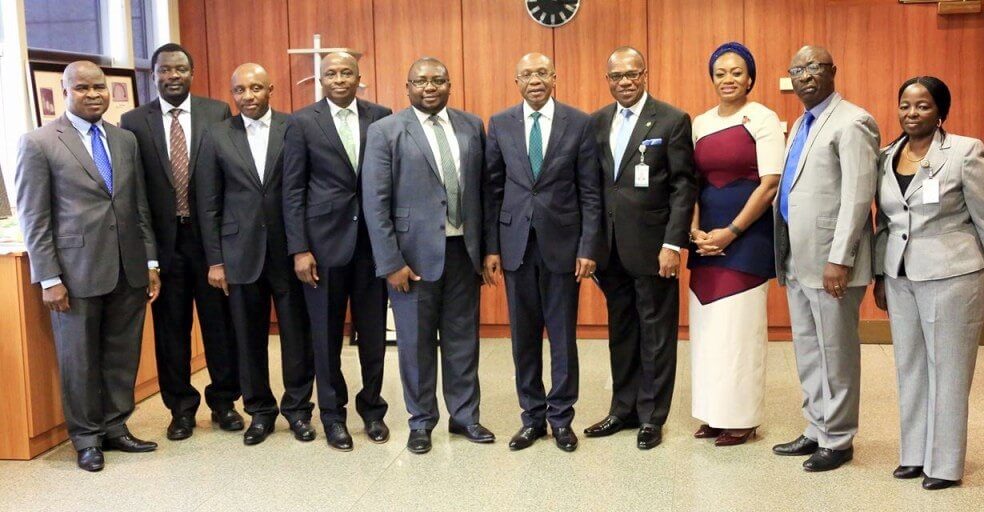Members of the Monetary Policy Committee of the Central Bank of Nigeria have advised the Central Bank of Nigeria Governor, Godwin Emefiele, to sustain the ban on Bureau de Change Operators from accessing the bank’s foreign exchange intervention.
The ban had been imposed on BDCs by the CBN in July last year over alleged unfair depreciation of the naira and rent seeking by operators.
Advertisement
As part of measures to save the naira which was around N506 per dollar at the black market, Emefiele also closed the issuance of new licenses to BDCs.
Since the clamp down on the BDCs, the currency has devalued to N580, while it closed for the year at the Investors’ and Importer Window at N435, from N411 per dollar.
But Adamu Edward Lametek, the Deputy Governor of the apex bank said in his personal statement in the last MPC meeting of the apex bank that the ban on the BDCs yielded a good result.
He said, “Against the backdrop of tight liquidity management and the recent modification of the foreign exchange (FX) management strategy, the naira exchange rate has remained stable since the last adjustment at the I&E window.
Advertisement
“Meanwhile, the initial panic-driven depreciation at the parallel market has gradually given way to real market forces.
“Apparently, the revised FX management strategy, which excludes BDCs from direct sales, is working as a substantial share of FX demand has migrated to the DMBs’ window.
“We should expect this pattern to continue in the coming months as confidence in the modified framework grows.”
Obadan Mike Idiahi also advised the apex bank governor on the need to sustain the policy in order to save the naira from unfair speculation.
He said, “The Bank would need to sustain the current foreign exchange management strategies which ensure that foreign exchange gets to priority growth-stimulating sectors of the economy.”
Advertisement
But he said the CBN needs to increase the monitoring surveillance of the foreign exchange activities of commercial banks.
He said, “The public is still skeptical about their transparency and cleanliness in foreign exchange matters.
“Notable challenges encountered in the implementation of the new foreign exchange policy include slow turnaround time for foreign exchange transactions, use of fake documentation, multiple applications by the same applicant, amongst others. A key desire is ensuring that eligible customers have unimpeded access to foreign exchange.”
Adenikinju Adeola Festus, said that 2022 would be a tough year for Nigeria’s forex inflows due to political activities ahead of the 2023 general election.
He said, “There is also the uncertainty around 2022, being a pre-election year. Usually, foreign investors are less likely to commit to new investment in the country, affecting foreign exchange reserves.”



